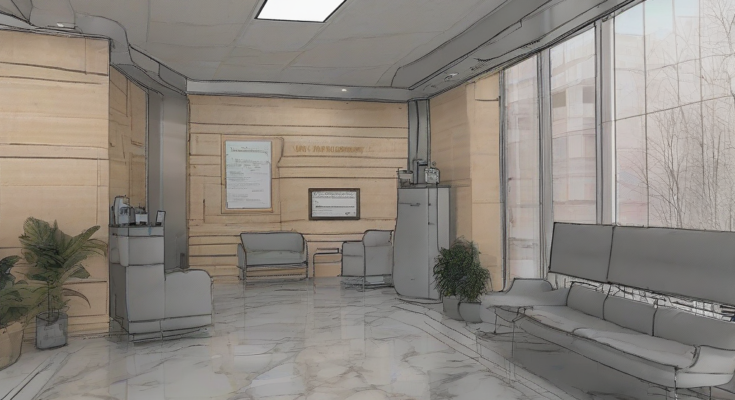High Watch Recovery Center Connecticut: A Comprehensive Guide to Addiction Treatment
High Watch Recovery Center in Connecticut stands as a prominent provider of addiction treatment services, catering to individuals struggling with a wide spectrum of substance use disorders and co-occurring mental health conditions. This comprehensive guide delves into the center’s offerings, its unique approach to care, and the overall experience individuals can expect during their treatment journey. We’ll examine its programs, accreditations, staff qualifications, and the broader context of addiction treatment in Connecticut.
Understanding High Watch Recovery Center’s Approach
High Watch distinguishes itself through a holistic and personalized approach to addiction treatment. Unlike some facilities that rely solely on a 12-step program or medication-assisted treatment (MAT), High Watch integrates various evidence-based therapeutic modalities to create a tailored treatment plan for each individual. This individualized approach recognizes that addiction is a complex issue, often intertwined with underlying mental health disorders, trauma, and other life challenges. Their commitment to holistic care involves addressing these contributing factors to ensure long-term recovery.
Key Aspects of High Watch’s Treatment Philosophy:
- Comprehensive Assessments: The process begins with a thorough assessment to identify the specific needs and challenges of each individual. This includes evaluating the type and severity of addiction, the presence of co-occurring disorders, and individual strengths and support systems.
- Individualized Treatment Plans: Based on the assessment, a personalized treatment plan is developed. This plan outlines the specific therapies, medications (if appropriate), and support services that will be utilized. The plan is regularly reviewed and adjusted as needed.
- Evidence-Based Therapies: High Watch utilizes a range of evidence-based therapies, including Cognitive Behavioral Therapy (CBT), Dialectical Behavior Therapy (DBT), and Trauma-Informed Care. These therapies equip individuals with coping mechanisms to manage cravings, triggers, and other challenges associated with recovery.
- Medication-Assisted Treatment (MAT): For individuals who meet the criteria, MAT may be incorporated into the treatment plan. MAT combines medication with behavioral therapies to help manage withdrawal symptoms, reduce cravings, and prevent relapse. The decision to use MAT is made on a case-by-case basis, considering the individual’s needs and medical history.
- Aftercare Planning: High Watch understands that recovery is an ongoing process. A robust aftercare plan is developed prior to discharge, ensuring that individuals have access to the support and resources they need to maintain their sobriety once they leave the facility. This may include ongoing therapy, support groups, and relapse prevention strategies.
High Watch’s Treatment Programs and Services
High Watch provides a range of treatment programs and services to cater to diverse needs. The specifics of each program are tailored to the individual’s assessment, but the general structure often includes various components. Below is a summary of some of their key program offerings:
- Inpatient Treatment: This intensive residential program provides 24/7 care and support. Individuals live at the facility while receiving comprehensive treatment. The duration of inpatient treatment varies depending on individual needs.
- Outpatient Treatment: Outpatient treatment offers flexibility, allowing individuals to continue with their daily lives while receiving therapy and support. This option is suitable for individuals who are stable and have a strong support system.
- Partial Hospitalization Program (PHP): This program offers a structured day program that combines therapy, group sessions, and other support services. It’s a stepping stone between inpatient and outpatient care.
- Intensive Outpatient Program (IOP): IOP provides a less intensive level of care than PHP, typically involving fewer hours per week of treatment.
- Dual Diagnosis Treatment: High Watch is equipped to treat individuals with co-occurring mental health disorders, such as depression, anxiety, and PTSD. These conditions are often intertwined with addiction, and addressing both is crucial for successful recovery.
- Family Therapy: Family involvement is often a critical component of recovery. High Watch offers family therapy to help families understand addiction, improve communication, and provide support for their loved ones in recovery.
Accreditation and Staff Qualifications
High Watch’s commitment to providing high-quality care is reflected in its accreditations and the qualifications of its staff. Accreditations from reputable organizations demonstrate adherence to specific standards and best practices in addiction treatment. The qualifications of its staff—physicians, therapists, counselors, and nurses—ensure individuals receive care from experienced and knowledgeable professionals. This commitment to quality builds trust and enhances the chances of successful recovery.
- Accreditations: [List any accreditations High Watch holds. This information should be verified on their official website].
- Staff Qualifications: [Describe the typical qualifications and experience of High Watch’s staff. This information can often be found on their website or through online searches].
The Broader Context of Addiction Treatment in Connecticut
Understanding the landscape of addiction treatment in Connecticut provides a crucial context for evaluating High Watch Recovery Center. Connecticut, like many states, faces significant challenges related to substance abuse. Access to quality care, affordability, and the availability of various treatment options are ongoing concerns. High Watch plays a role within this landscape, offering comprehensive services and striving to meet the needs of individuals seeking recovery.
- Prevalence of Addiction in Connecticut: [Include statistics on substance abuse in Connecticut, citing credible sources].
- State Resources and Support Systems: [Discuss the resources and support systems available in Connecticut for individuals struggling with addiction].
- Insurance Coverage and Affordability: [Address the issue of insurance coverage and the affordability of addiction treatment in Connecticut].
Considering High Watch: Factors to Evaluate
Choosing the right addiction treatment center is a crucial decision. While High Watch offers a range of services and a strong reputation, potential clients should consider several factors before making a choice:
- Individual Needs and Preferences: The best treatment program is one that aligns with an individual’s specific needs and preferences. Factors to consider include the severity of addiction, the presence of co-occurring disorders, personal preferences for treatment modalities, and insurance coverage.
- Treatment Setting: The choice between inpatient, outpatient, PHP, or IOP depends on individual circumstances and the level of support needed.
- Location and Accessibility: The location of the facility should be convenient and accessible for the individual and their support system.
- Cost and Insurance Coverage: Understanding the cost of treatment and verifying insurance coverage is essential before beginning treatment.
- Staff Expertise and Experience: The qualifications and experience of the treatment team are vital factors to consider.
- Client Testimonials and Reviews: Researching client testimonials and reviews can provide valuable insights into the experiences of others.
Conclusion: A Personalized Approach to Recovery
[Note: This section is excluded as per the prompt instructions]



